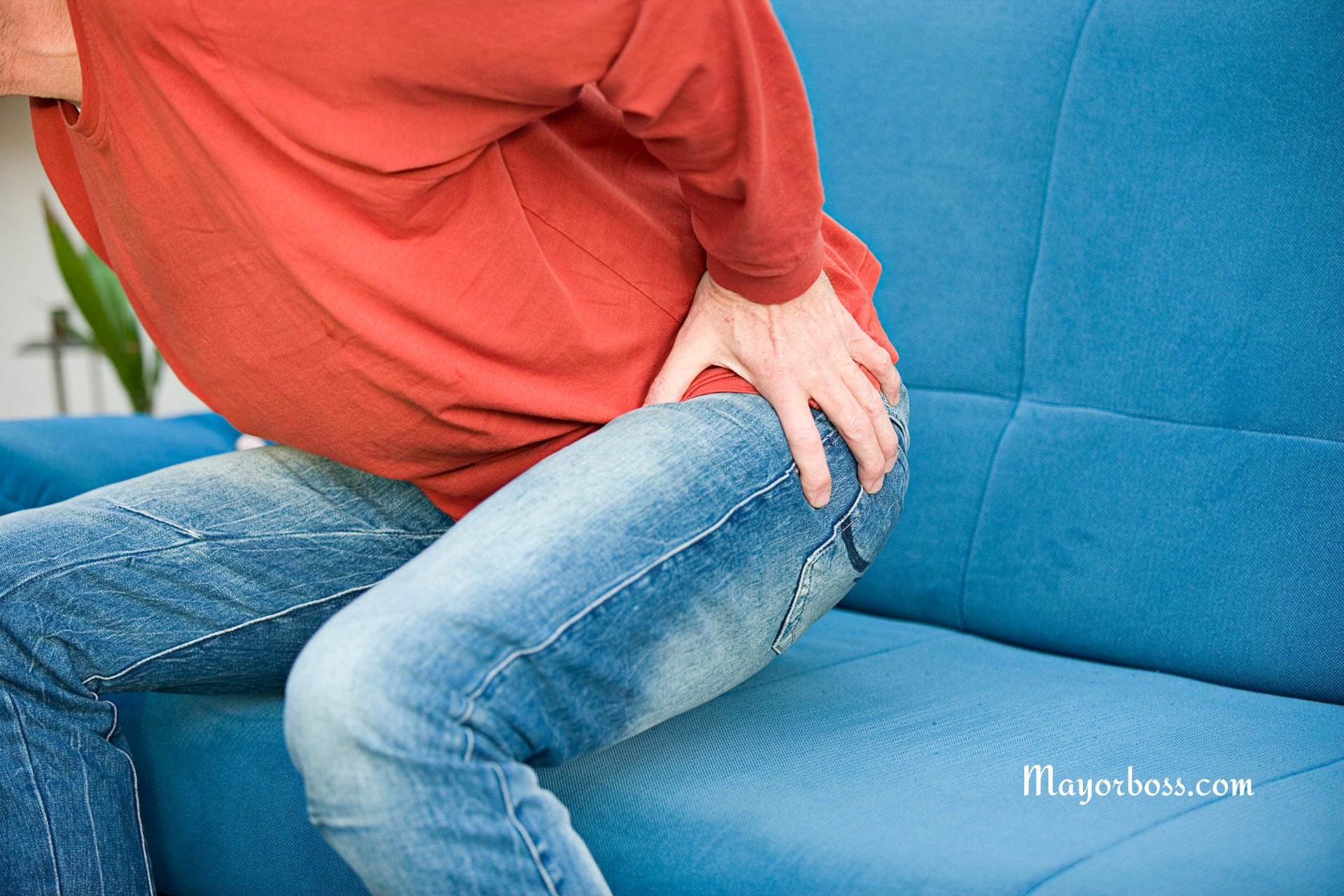My Hip Hurts, And The Pain Goes Down My Leg – What’s Wrong?
Hip pain is a common complaint, and when it travels down your leg, it can be both worrisome and debilitating. There are several potential causes, ranging from muscle injuries to more serious underlying conditions. This article is your guide to making sense of this type of pain and understanding when to seek medical help.

Possible Causes of Hip Pain Radiating Down the Leg
Several different issues can lead to pain running from your hip down your leg. Some of the most common include:
- Sciatica: This is a condition marked by irritation or compression of the sciatic nerve, which runs from your lower back through your hips and down each leg. Symptoms often include a sharp, shooting pain that gets worse with sitting. Sciatica can be caused by:
- Herniated disc (when a spinal disc bulges, putting pressure on the nerve)
- Spinal stenosis (narrowing of the spinal canal)
- Piriformis syndrome (tightness in the piriformis muscle deep in the buttocks)
- Hip Arthritis: The wearing down of cartilage in the hip joint can cause pain, stiffness, and inflammation that may radiate down the leg. Osteoarthritis, the most common type, generally results from age-related wear and tear.
- Trochanteric Bursitis: Bursae are small, fluid-filled sacs that provide cushioning near your joints. Hip bursitis occurs when the bursa over the bony point outside of your hip becomes inflamed, leading to pain that may spread down the outside of your thigh.
- Hip Muscle Strains or Injuries: Overuse or acute injury to hip muscles and tendons can also cause pain extending into the leg.
Note: The above are just some potential causes. Less commonly, issues like infections, tumors, or fractures might be behind hip pain radiating down the leg.
When to See a Doctor for Radiating Hip Pain
While mild hip pain often improves with rest and self-care, it’s essential to seek medical advice if you experience any of the following:
- Severe pain that doesn’t get better
- A sudden onset of pain, especially after a fall or injury
- Pain associated with swelling, redness, or warmth in the hip area
- Numbness, tingling, or weakness in your leg
- Difficulty walking or bearing weight on the affected leg
- Fever, chills, or other signs of infection
Seeking a Diagnosis for Hip Pain
To pin down the cause of your radiating hip pain, your doctor will conduct a thorough evaluation, which may include the following:
- Medical history: Discussing your symptoms, prior injuries, lifestyle, and any other health conditions helps identify potential factors.
- Physical examination: They’ll inspect your hip, move your leg in various ways, and test muscle strength and reflexes.
- Imaging tests: X-rays, MRI, or CT scans might be ordered to examine bones, joints, and surrounding tissues.
Treatment Options for Hip Pain Radiating Down the Leg
The right treatment for your radiating hip pain depends on the underlying cause. Your doctor may recommend a combination of approaches, including:
- Medications: Over-the-counter pain relievers like ibuprofen or naproxen may help. Prescription medications are sometimes used in more severe cases.
- Physical therapy: Targeted exercises can help improve hip flexibility, range of motion, and strength.
- Injections: Corticosteroid injections reduce inflammation and provide pain relief, often for certain conditions like bursitis or arthritis.
- Surgery: This might be considered for conditions like herniated discs or severe arthritis when other treatments aren’t effective.
FAQS
1. Can I manage hip pain radiating down the leg at home? For mild cases, self-care can make a difference. Try ice packs, heat, over-the-counter pain relievers, and gentle stretches. But don’t self-diagnose – see a doctor if needed.
2. How long does it take for hip pain to go away? It varies per cause. Minor strains may improve within days, while chronic conditions take longer to heal. Consulting a doctor is always wise for an accurate timeframe.
3. Can stress cause hip pain? Indirectly, yes. Stress can lead to muscle tension and poor posture, contributing to pain in the hips and elsewhere.
